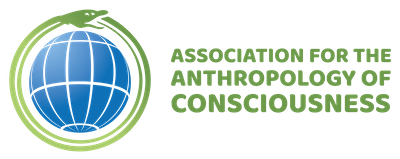How do we observe consciousness, whether our own or the consciousness of others? Dr. Peter Grossenbacher, Director of the Consciousness Laboratory at Naropa University, observes consciousness through empirical, scientific research on meditation. What Can Cognitive Neuroscience Learn from Contemplative Spirituality? is taken from a Buddhist-Catholic dialogue in Los Angeles, CA in 2007. To use the words from the abstract:
“Subjective experience is orchestrated by vast networks of living brain cells. Empirical studies are now encountering depths and nuances of experience in religion and spirituality previously unknown to science. Meditation, the central contemplative practice of Buddhism, trains attentive skills which mediate profound observations of subtle human experience, and is receiving great scientific interest, fueled by recently developed functional brain imaging methods. The subtleties of spiritual experience are explored from a neuroscience view that delineates the pivotal roles of attention and intercellular communication within the nervous system.”
http://www.urbandharma.org/mp3/grossenbacher021607.mp3
In his talk (which is about an hour and a half but if you are crunched for time start at about 25 minutes), Grossenbacher discusses the physiological, neurological, and social implications of research on spiritual experience. In this study, he took groups of non meditators and meditators and attached scalp recording electrodes to their heads. He was able to measure large groups of neurons firing in sync through recording electrical fields in areas of the brain during and without meditation. He measured millisecond by millisecond activity to record changes in the brain and was able to use this methodology to find patterns in the brain. He found consistently higher neurological activity and greater coherence between the left and right sides of the brain during meditation. He also looked at neurological coherence (or awareness) in meditators when they were in meditation and when they were not meditating. His results were consistent to his previous finding of greater coherence during meditation. He speculates the relevance of this information for moving towards a paradigm inclusive to contemplative psychological healing and to a discussion on the social status of consciousness studies in general.
Grossenbacher conveys the idea that researching spiritual experience has implications for the current scientific understanding of subjectivity. Subjectivity as it stands is often seen as less significant then objective methodologies of knowing. Grossenbacher looks at this as a dogma of what he calls scientism to delineate the spots of missed knowledge from clinging to one perspective on understanding the physical foundations of the universe. He look at scientism as a venture of truth. He purports any scientific study that gains even a glimmer of understanding around experiences of human spirituality has a good chance of not being taken seriously or not researched due to the social implications in engaging in that kind of work.
As a contemplative psychological researcher he negotiates the line between objective scientific inquiry and the complexity of the study of subjectivity. At one point Grossenbacher brings up the need to ground in scientific knowledge but to be mindful of outcomes of disregarding spiritual experience due to scientism. Around 35 minutes this discussion begins in the video and at 45 minutes he states “In the world we live in today, in this culture, in this continent I would venture that there might be more people that give credence to science then give credence to to their own spiritual experience.” No matter the evidence on the relevance of subjective spiritual experience, Grossenbacher elucidates a cultural taboo of observing consciousness. When he claims that people would give more credence to science then their own spiritual experience, he points to a taboo that has plagued a broader discourse on the functioning of spiritual experience and ultimately a new understanding of psychological healing and development through contemplative practice.
Grossenbacher explains how neuroscience can actually be broadened with contemplative psychology with a new understanding of the dynamic between subjective experience and brain functioning. In turn neuroscience can inform a broader social acceptance and inquiry into the role of consciousness in healing, psychology, and development. As Grossenbacher finds in the Consciousness Laboratory, a subjective spiritual experience has a neurological impact that can be utilized as a tool for the evolution of consciousness studies.
Anthropologist have long been fascinated with spiritual or transpersonal states of consciousness found in ritual, possession, and trance. There have been many studies done on states of consciousness induced by plants, fungi, and other physical processes. This field of inquiry is still very much a taboo in various academic circles despite the vast knowledge of research and information available. Socially, consciousness studies challenge an existing epistemology around the complexity in the interaction of neurological and psychological processes with cultural or spiritual practices. Grossenbacher’s contemplative research can aid in the ability to observe consciousness in ourselves and in others by integrating contemplative psychology and neuroscience. Furthermore this type of research may one day open up to possibilities of research and innovations of consciousness studies that can contribute to cultural acceptance, healing, and much more.

